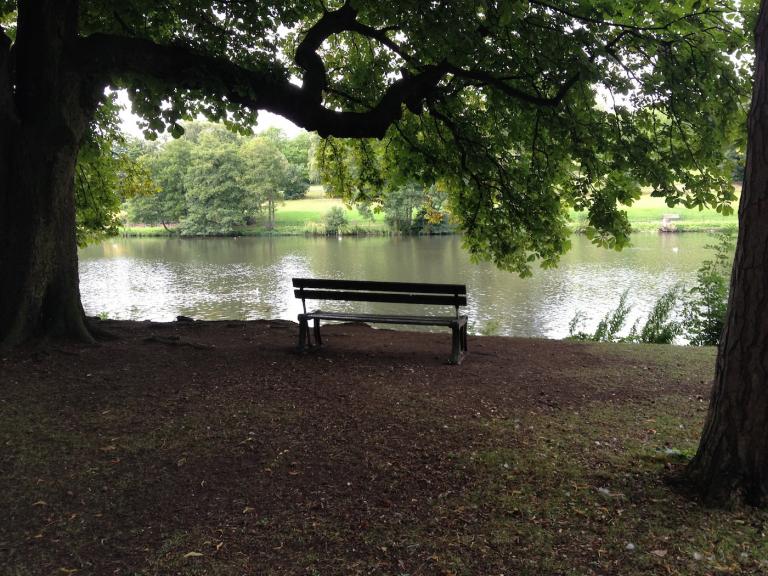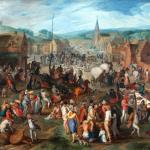
Ordinary Time
18 July 2018
The Edge of Elfland
Concord, New Hampshire
Dearest Readers,
The other day I came across a facebook post by the inimitable Malcolm Guite. I can’t recall the exact circumstances of it, but in it he briefly mentioned the beginning of Wendell Berry’s “How to Be a Poet (to remind myself),” “Make a place to sit down.” I have to admit that as much as I am told I will love Wendell Berry, I have read very little of him. Jayber Crow is the only novel of his I have read, and I could not name individual essays or any poem except “How to Be a Poet.” So, while for many I am sure this poem is old news, it was a revelation to me.
The first stanza opens with the call to discover personal space, but internally and externally.
Make a place to sit down.
Sit down. Be quiet.
So the poem begins, a call to silence and to dedicated space. This seems fitting for a poet such as Berry whose interests are decidedly local. Yet it is not just the external, but the internal space.
You must depend upon
affection, reading, knowledge,
skill—more of each
than you have—inspiration,
work, growing older, patience,
for patience joins time
to eternity.
Joined to the external place to work in is the internal place of the poet’s own mind. Here we have one of my favorite lines, “for patience joins time/to eternity.” This, as I understand it, is precisely what the liturgy does as well. Time and eternity meet in the person of Christ who is present in the Eucharist. And yet Christ is also present in us and so, in our own way, we too join time and eternity.
Berry goes on, in the second stanza, to eschew cords and screens and wires, preferring instead the slow and the more connected. I am sympathetic to this even if I am imperfect in the practice of it. Yet, I think Berry is ultimately right. When you put pen or pencil to paper your are using a tool which is an extension of yourself to convey something, to convey yourself. The paper can more readily accept you from the pen or pencil than it can from the printer or the digital. In this stanza comes my second favorite line:
Stay away from anything
that obscures the place it is in.
There are no unsacred places;
there are only sacred places
and desecrated places.
There is an implication here that the machine obscures the place it is in. And again, I think there is something to this. After all, you can surround yourself with nature or with art, but if your eyes remain glued to the glow of your computer screen you will never see them. But it’s those last three lines. On the one hand, I have to somewhat disagree. There are special places, places where the sacred is more concrete, more apparent, where the line between this world and the other is blurred. And yet. And yet there is a sense in which Berry is right. We know that there are no unsacred places precisely because we have encountered the more fully sacred.
In the end, however, it is the return to silence. This is the reason for the choice of place, the lack of wires, the dependence on one’s own thought rather than that of one’s readers. It is from the space for silence that the poet creates that poetry comes, not always a silence which is a lack of sound, but a silence that eschews the noise of parts of modern life.
Accept what comes from silence.
Make the best you can of it.
Of the little words that come
out of the silence, like prayers
prayed back to the one who prays,
make a poem that does not disturb
the silence from which it came.
Read the whole poem here and let it speak to you as it has spoken to me.
Sincerely,
David Russell Mosley
P.S. Don’t forget to check out my podcast, To Wonder and to Wander, and please consider being a patron of my work.











